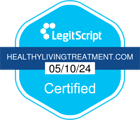A detox program in Los Angeles is an extensive process that requires a lot of effort on the part of the patient in order to ensure a successful recovery. This can easily become a complicated, disorienting process, through which several aspects of the patient’s life are examined and evaluated in order to properly address any causes or byproducts of the subject’s addiction. In order to achieve that, the treatment begins with thorough detoxification and evaluation of the person so as to avoid further physiological issues and recognize psychological ones that are to be treated. We understand that this could sound intimidating, but once you understand the stages of the process, it is not as complicated as it seems.
A Detox Program in Los Angeles
The detox process is not meant to treat the addiction in and of itself, but it is instead just a part of the long term treatment. Through detox, the treating staff removes the toxins left behind by the consumption of drugs and alcohol from the body. This way, they can avoid the many effects of withdrawal through safe, medical treatment. Otherwise, without medical supervision, these could easily lead to serious, perhaps fatal consequences. This can be done with or without the use of medication, and the methods will vary depending on the location of the treatment.
The drug and alcohol detox treatments will be accompanied by therapy and counseling sessions in order to aid the process psychologically. While the physiological effects of addiction are treated through detox, others have to be addressed via therapy. If neglected, the psychological effects may cause complications throughout the subsequent treatment, rendering it ineffective. The first step of the process will always consist of an evaluation that determines the specific substances plaguing the patient’s system, and the co-occurring disorders that exist as causes or consequences of the addiction. These are evaluated to ease the following treatment and to set its specific goals.
Possible Consequences of Addiction Withdrawal
- Anorexia – This involves a lack of appetite, accompanied by nausea and vomiting.
- Restlessness – People can experience irritability, agitation, and anxiety.
- Insomnia – A lack of sleep might be caused by insomnia or intense dreaming and nightmares.
- Poor concentration – The person’s memory is impaired or their judgment affected.
- Hallucinations – These hallucinations caused by withdrawal can be auditory, visual, or tactile.
- Seizures – Grand mal seizures are generalized seizures that produce convulsive muscle contractions.
- Tremors – Tremors and shakiness can be caused by an elevated heart rate.
- Delusions – Delusions caused by withdrawal can often be paranoid and persecutory, creating anxiety in the subject.
- Increased sensitivity – Subjects may experience increased sensitivity to light, sound, and tactile sensations throughout withdrawal.
What Happens After Detoxification
Substance dependence is a complicated matter to resolve, and detox is not the sole part of the overall treatment. According to the United States Department of Health and Human Services, there are three steps in the process of detoxification. These are:
- Evaluation – The patient has to be tested in order to recognize the specific substances that are circulating in their system. This process includes a dual diagnosis meant to recognize concurrent disorders.
- Stabilization – When it comes to stabilizing the patient, the subject is guided through the process of medical detoxification. This may or may not involve the use of medication, depending on the specific case. This stage also involves going over the subsequent process with the patient, thoroughly explaining and breaking down the treatment.
- Guiding Patient into Treatment – Last, in the detoxification process, professionals will prepare the patient for the actual process of recovery. After all, detoxification only deals with the actual physiological dependency. Meanwhile, the psychological aspects of the addiction are to be treated through a series of steps that comprise the actual drug rehabilitation process.
Things We Keep in Mind
Since people in detox programs come from varying backgrounds and cultures, our program remains attentive to all the different needs and nuances of everyone. Planning for recovery is always done in conjunction with the patient, and their point of view is a valuable asset to the treatment. After all, every team member in our staff is responsible for assisting each patient and recognizing their recovery as a possible outcome. Therefore, they must identify potential problems that could prevent such a recovery.
Additionally, it is worth noting that the detox process differs from person to person, and with varying degrees of intensity and overview. Both the medical and psychological aspects of the rehabilitation treatment will adapt to each case, and our staff is prepared to handle the necessary individualization of such treatments.
Contact Healthy Living Detox Program in Los Angeles
If you or anyone you know are looking for a detox program in Los Angeles in which to begin your rehabilitation journey, Healthy Living is the perfect place. Our thoughtful and caring approach to addiction recovery is what makes our program the best place for a successful treatment. Call us at (661) 536-5562 for more information regarding our detox programs.




 <!—->
<!—->
